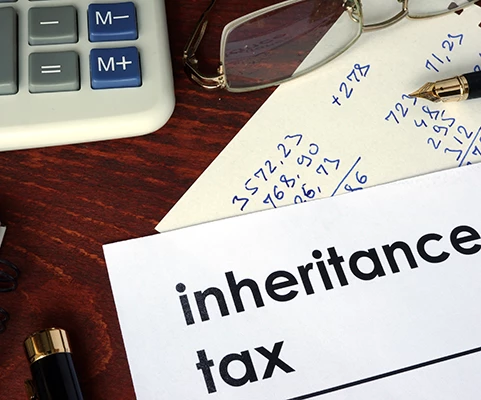According to HMRC, one in twenty estates now pay inheritance tax (IHT). While it may be more comfortable to avoid thinking about what happens after you’re gone, IHT planning is about looking after the people you leave behind so it’s worth giving it some thought. In this article we’ll look at what business owners and Limited company directors need to know about inheritance tax.
What is inheritance tax?
Inheritance tax (IHT) is paid on the value of the assets that a person leaves behind when they die. When you pass away, “your estate” includes all the assets you leave behind. If the combined value of all these assets is above the threshold, (or Nil Rate Band) of £325,000 IHT may be payable.
IHT is charged at 40% of the estate’s value above the Nil Rate Band.
Exemptions
There is normally no tax to be paid if:
the value of your estate is below the £325,000 threshold known as the nil rate band
you leave everything above the threshold to your spouse or civil partner, or
you leave everything above the threshold to an exempt beneficiary, such as a charity or a community amateur sports club, or
if you leave your home to your children or grandchildren your threshold can increase to £500,000 due to the resident nil rate band of £175,000 becoming available as well.
The Nil Rate Band
IHT is due on the value of your estate over the nil rate band (NRB) of £325,000. This is fixed until 2026, but your NRB could be higher if you’re widowed or a surviving civil partner. The extra transferable element is called the Transferable Nil Rate Band, and could take your NRB up to £650,000.
The Residence Nil Rate Band
The Residence Nil Rate Band (RNRB) is an allowance introduced in April 2017 to reduce the amount of inheritance tax you might pay when passing on your main residence. It is available in addition to the general Nil Rate Band if certain qualifying conditions are met.
The RNRB is only available where the main residence passes to direct descendants; essentially, children (including adopted, foster or stepchildren) and grandchildren.
The allowance does not apply automatically – it must be claimed. A claim typically needs to be made by the deceased’s representatives within 2 years ending from the end of the month in which death occurs.
The RNRB will still be available where you have sold your home and downsized to a less valuable property, or even if you no longer own property, provided that you sold your home that would have otherwise qualified on or after 8 July 2015 and at least part of your estate is inherited by a qualifying beneficiary.
Reducing your inheritance tax liability
In order to reduce the inheritance tax liability you can reduce the value of your estate. Below is a list of gifts that can be given during your lifetime that are exempt from inheritance tax and reduce the residual value of your estate taxable at 40%.
Small gifts exemption, up to £250 cash per recipient per tax year
Marriage exemption - £5,000 to a child, £2,500 to a grandchild or £1,000 to anyone else
Normal expenditure out of income (for example paying for school fees)
Annual exemption per year of £3,000 that can be carried forward by one year.
For more information on inheritance tax planning or making lifetime gifts, please speak to one of our expert accountants on 01296 468 185 or email accountancy@orangegenie.co.uk
